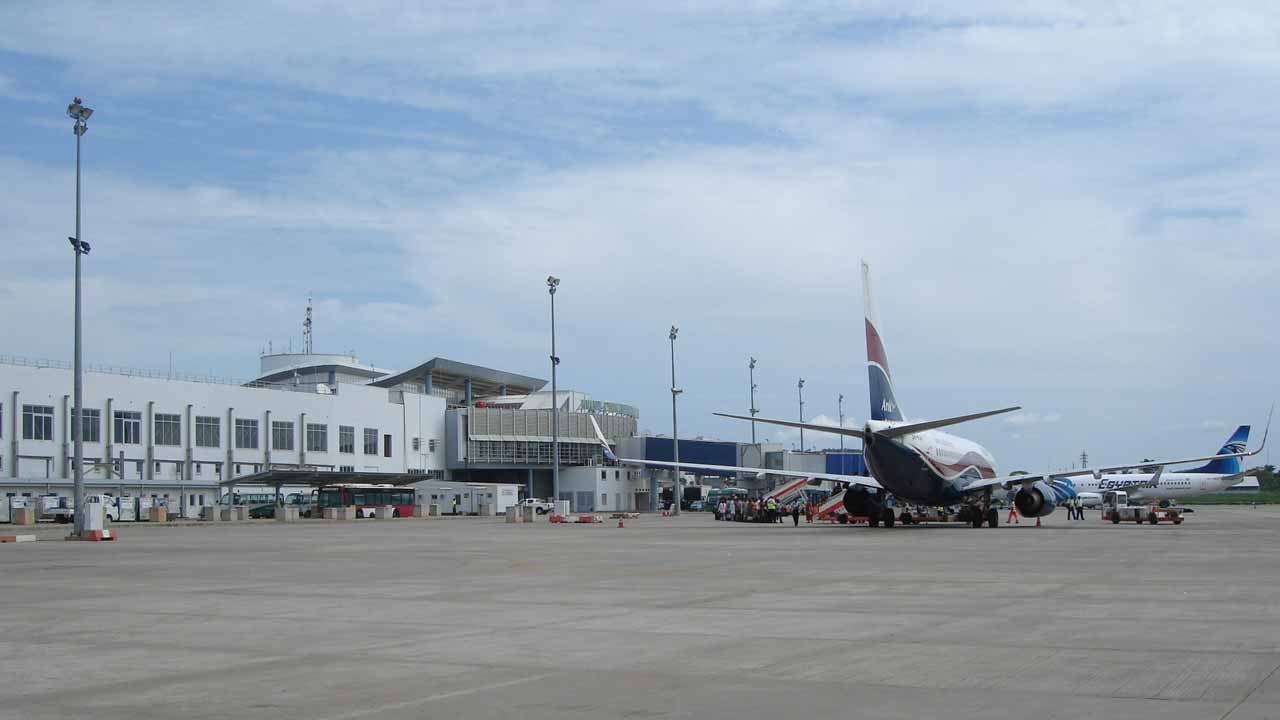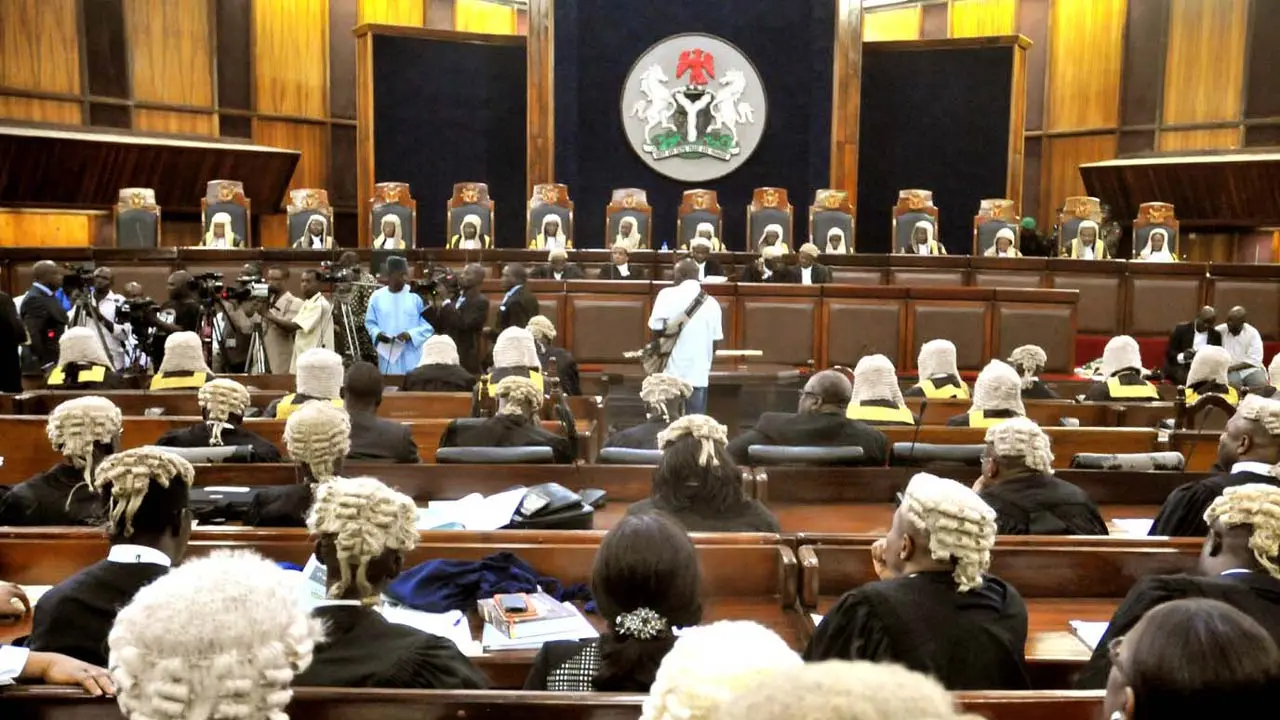
The closure of Abuja airport. Even the thought is such a ridiculous outlandish one and shows how far away from reality we are. How do you shut a major entry into the country? (Africa’s most populous country and largest economy). Could Ghana afford to close Kotoka Airport in Accra? This question was posed in Accra last week. People looked bewildered as if to say “where is he coming from? Doesn’t he know how vital the airport is to the overall economy of Ghana?”
Abuja has approximately the same population as Accra and they are both capital cities. 2016 figures: Abuja six million and Accra four million. Imagine the impact on our national economy. Both cities are developing new airport infrastructure so there are many similarities. However a major difference appears to be in the planning of these developments. You can feel it when you’re in these airports. One gives you a semblance of order and progress, the other, a sense of confusion and short-sightedness. You can guess which is which!
The real issue on the table on Abuja Airport runway is not whether the runway needs to be resurfaced/repaired, but whether the airport should be closed in total for six weeks or possibly more (there is no guarantee of six weeks) to effect these repairs or whether the work can be done overnight or even on weekends to avoid not just a complete closure but more importantly to prevent massive financial and economic loss to airport operators, airlines, support services and the Abuja economy in general.
What is so worrying is that we have not been properly briefed on why the airport needs to be closed and the reasoning that has led to this decision. There has been little or no interactive discussion and the ministry’s request that all stakeholders descend on Abuja for what was supposed to be an interactive stakeholder meeting did nothing to explain the rationale behind the thinking. This recent demonstrative and draconian approach of government to interacting with the private sector and civil society, smacks of military pronouncements without military training! We were simply addressed on what was to take place and dismissed without patience for any questions from the general assembly.
Numerous letters have been written to government on the closure from a host of interested parties. It would be interesting to know the number of responses if any to these letters. There have also been articles in our national media which in the main seem to have fallen on deaf ears. This paper, is yet another attempt to draw our government into constructive dialogue in the hope we can together find the best solution to this matter and save ourselves major economic losses that will accrue to the economy of Abuja and therefore Nigeria, to the aviation service providers, to the airlines, both domestic and international, and most importantly the international embarrassment as Nigeria will surely be the first country to take this approach to resurfacing/repairing one of its major airport runways
We would therefore ask government to enlighten us on the factors that led to the decision to completely close the airport as against a partial closure. It might be for instance that the damage to the runway is so bad that there are no alternatives. Then the general public and for sure, the now popularly used description ‘stakeholders’ should properly be informed
We have heard it all before but it’s so relevant that we have to ask the questions again and again till we get some convincing answers. Why is it that Gatwick Airport’s 3.3km main runway which handles over 53 hourly aircraft movements and is the world’s busiest single runway airport (single here is important as Abuja is also a single runway airport), can be resurfaced whilst maintaining the airport’s demanding flight schedule? In 2011, this work was carried out by shutting down the airport between 2130hrs and 0530hrs, six days a week, meaning no loss of business. In Frankfurt, Germany (in which country Julius Berger’s parent company resides) the same approach was taken “working through the night to rebuild Frankfurt Airport’s crumbling runway. Workers face not only a ‘non compromise deadline to finish by dawn when the jets start landing again. To be sure Abuja Airport has no unexploded bombs and for sure not as many aircraft movements. Perhaps the contractors awarded the job can shed more light on the technical reason(s) for shutting down the airport as opposed to carrying out the work in sections and shifts. There are numerous other references on this subject which only begs the question why Abuja has to have a complete closure.
Aside from the cost of the contract, we need to understand the overall cost to the government, the Abuja economy, to the airlines, to the FAAN and to the aviation service providers. In order to divert aircraft to Kaduna Airport, work needs to be carried out at the Kaduna Airport, equipment purchased, facilities upgraded and manpower provided. What is the budget for putting Kaduna Airport in order, providing international standard firefighting equipment, having required capacity fuel bowsers (it seems todays equipment can only service 1 Boeing 737 in terms of capacity), transport to and from not only the Airport but also to and from Abuja? Rehabilitation of the Abuja- Kaduna highway, “specialized” bus to ferry passengers, provision of additional FRSC personnel, police and security agencies, ambulances etc. All this comes at a cost and we ought to be told what this cost is and who will ultimately bear this cost? For sure it must be in the Billions and this brings to mind the question: “is there a budget for it?”
Then there is Abuja effect. On the Abuja economy, reduction in hotel rooms rented, restaurants and taxis, private businesses (meetings) even government work, will all be negatively affected. There certainly is a cost to all of this. Then we have the international airlines that will not fly to Kaduna and the loss of passenger revenue, and the associated loss of landing and parking fees and passenger tax, added to this the loss of business to companies such as ground handlers, inflight catering companies, courier services, import export companies, car hire services, shops, restaurants and bars at the airport. Must companies lay off staff? Who will pay them during this period; switch off essential machinery which must run? Then again we must factor in all the businesses that supply services to those working at the airport. Will government/ FAAN prorate rent and fees at the airport during this period? Given all these losses which will again run into billions of Naira, no one thought it was important to discuss the options in detail with the ‘stakeholders’. Is this a responsible inclusive government?
We need answers to these questions to justify the losses. For some time now there seems to be a form of divide between government, business and society. We must all remember we all have a stake in this and most things are interrelated. We are in a democracy and we need to be carried along. We need to have a comparative analysis of the options, outright closure VS night closure to be able to make an informed decision on the economic consequences of this action.
To understand better the overall implications on this decision and the problems in aviation there is a need to make a slight but necessary deviation from the main theme of this opinion. There are far too many unanswered question in aviation today which might fall under the heading: ‘planning’. Do we have an aviation sector plan? And if so, can the public know what it is? In Britain for instance, there is an Aviation Policy Framework covering more than 30 years which is all-encompassing and touches all sectors of the economy relating to aviation. It is on the web for all to see and can even be purchased for £21.00. We don’t know government’s plans for aviation in Nigeria, so how can the private sector or society in general participate or key into it.
Perhaps we are not meant to know and this might explain the lack of information for instance on the new terminals in Abuja and Lagos. In Abuja, rumours abound about the new terminal interrupting the line of sight of the control tower. Is there any truth to it? There is no information on the annual capacity of this terminal for passenger throughput, aircraft type and this is the same for Lagos where the rumour is that the new terminal can only handle narrow bodied aircraft which would seem odd for an airport that mostly handles wide bodied aircraft. Then there was the ‘Aerotropolis’ development plan for the airports which set up legal entities devolving ownership of the airports to an unknown consortium with FAAN owning only 15%. Has this been shelved? Then government talks of committees set up to advice on the development of our aviation sector key to which is the establishment of viable and sustainable flag carrier, a major corner stone in the development of any aviation sector but, again, nothing happens.
Going forward, examples abound as to the need for flag carriers to develop the industry. Take Dubai and Emirates, Germany and Lufthansa and, closer to home, Rwanda and Rwandair. Without the establishment of these airlines as part of the plan, aviation is going nowhere in Nigeria, we need these plans on the one hand to plot a route to reducing our foreign exchange deficit in Aviation and on the other, to capitalise on aviation as a major means of transport within Nigeria, in the region and across our continent.
Now back to present reality and the closure of Abuja airport. In 2006 the Federal Government of Nigeria through the agency set up to privatise our assets (BPE) along with the International Finance Corporation (IFC), transactional advisors, completed a successful tender for the concessioning of Abuja airport. Without going into details this tender was later cancelled but what is most relevant is that, had the winning consortium been allowed to complete its deserved and stated objectives government would not have spent the huge amount of monies it has spent 10 years since the tender as both a new terminal and second runway were all parts of the requirements under the tender.
Now we are told we will do the unthinkable and close our capital city’s airport and move passengers to Kaduna some 210km away. We still do not know the overall cost and one must presume this is a great opportunity to not only rehabilitate the poor state of the road and the Kaduna airport though the use of the ‘Special intervention fund’ as it seems no budget exists for all these projects which can hardly be called plans
In closing, we would like to refer to the remarks of one foreign international aviation specialist when asked about his thoughts on closing Abuja airport: Simply put:
“It’s a no-brainer. One cannot shut down the nation’s capital airport completely. Kaduna to Abuja is 210km and in Nigerian conditions some 3-3 1/2 hours’ drive at least”
“Julius Berger should be in the position to work through night shut-downs and operate the runway during the day. It’s done all over the world.
Wonder why no-one thought of that.”
Can we please have an independent international assessment of the runway to advice on the best course of action for the resurfacing of the airport? Possibly IATA, ICAO, FCAA… We owe it to ourselves not to throw the baby out with the dirty bath water which will cost our economy billions.
In view of the forgoing here are three possible solutions:
. Repairing the 3900 meter long runway in 2 phases of 1950 meters each on a 24-hour basis. The reason for this is that a Boeing 737 which is the most common aircraft used domestically needs between 1800 meters and 1900 meters length to land or take off. This will enable ALL International Airlines with wide-bodied aircraft to land in either Lagos, Kano, Port Harcourt while the domestic airlines do the Abuja shuttle. This will also help domestic airlines and aviation service companies keep going in business terms.
. Work between 21:00hrs and 05:00hrs the next day and keep the airport open for work during the day.
. Close the airport from 7 p.m. on Friday and open it at 6 a.m. on Monday morning. So the contractor can work through the weekend. Of course there are various other alternatives but all include the continued running of Abuja airport at the core.






